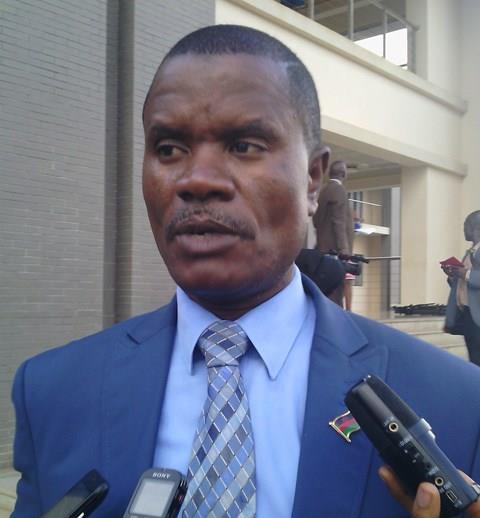Malawi High Court Judge, Lovemore Chikopa has arrived in Zambia after more than one month of absence amidst speculation by opposition leaders that he has been staying in Zambia from the time he was sworn-in as tribunal chairperson in May this year.
Mr Justice Chikopa, who is also the chief adjudicator at the Malawi Commercial Court, first arrived in Zambia on May 15, this year.
He was sworn in by President Michael Sata on May 16 to head a tribunal meant to probe the conduct of Supreme Court Judge Philip Musonda, and High Court judges Charles Kajimanga and Nigel Mutuna.
The three were initially suspended by the President but later resumed work after the High Court granted them a stay over the matter.
Mr Justice Chikopa, known in his homeland as an impartial judge and is synonymous with landmark judgments, according to the Nyasa Times of Malawi, arrived at Kenneth Kaunda International Airport in Lusaka aboard a Kenya Airways flight yesterday and was received by tribunal secretary, Chipili Katunasa.
Upon his appointment to head the Zambian tribunal, Mr Justice Chikopa told Nyasa Times that he would execute his duties in accordance with the rule of law and natural justice and emphasised that he would not be swayed by fear or favour.
He has returned to get an update on the eagerly-awaited tribunal proceedings that have stalled owing to court battles that have ensued between the State and the three judges.
“I have just come back. I left Zambia on July 26, last month and this is when I have come back,” Mr Justice Chikopa said.
Opposition leaders and some civil society organisations have sounded chorus-criticism alleging that Mr Justice Chikopa had been staying in the country since his appointment at a huge cost which was being borne by the Zambian Government.
They have been demanding that he returns to Malawi.
If the tribunal gets to sit, the judge would be assisted in the matter by retired judges Naboth Mwanza and Thomas Ndhlovu.
According to the terms of reference on suspended Judge Mutuna, the tribunal would inquire into his conduct in relation to the manner in which he presided over the hearing and determination of the case of the Development Bank of Zambia versus Post Newspaper Limited, JCN Holdings Limited and Mutembo Nchito.
The tribunal would specifically inquire into charges that Judge Mutuna misbehaved or acted incompetently when he proceeded to hear and determine the matter without a formal order transferring the matter from Mr Justice Albert Wood before whom the matter had been heard.
It was alleged that Judge Mutuna misbehaved or acted incompetently when he proceeded to hear and determine the matter in total disregard of evidence available to him that clearly demonstrated that Mr Justice Wood’s independence as a judge had been interfered with in the course of proceedings relating to the matter.
Additionally, Judge Mutuna allegedly misbehaved or could have acted incompetently in the circumstance of the matter when he proceeded to deliver judgment in a matter in which the plaintiffs had expressly indicated that they no longer intended to proceed with the matter as a result of which they filed a notice of discontinuance.
On Mr Justice Musonda and Judge Kajimanga, the tribunal would inquire into their relation in the matter in which they allegedly interfered in and illegally retrieved or caused the retrieval of cases of Development Bank of Zambia versus the Post Newspaper Limited, JCN Holdings and Mutembo Nchito, and Finsbury Investment Limited versus Antonio Ventriglia and Manuela Sebastiani Ventriglia, the matter which was before Mr Justice Wood.
Mr Justice Musonda and Judge Kajimanga allegedly misbehaved or acted incompetently when, while acting together, they allegedly conspired to pervert the course of justice by retrieving or causing the retrieval of records relating to matters from Mr Justice Wood during the due execution of his judicial functions as Judge of the High Court of Zambia.
The suspended judges obtained a stay to prevent the tribunal from sitting to hear their alleged impropriety pending the full determination of the matter by the High Court.
The matter has since reached the Supreme Court after the State appealed against the sustaining of the stay by the High Court.




